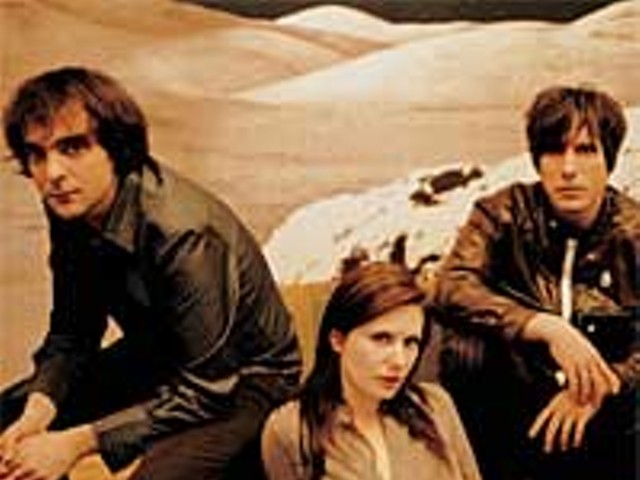Scott and his partner, Jeanie, chatted about life and art the other day, taking a call from their home near Cleveland.
Movie: There’ve already been two documentaries about Scott, and rights to Faith in Time: The Life of Jimmy Scott, David Ritz’s 2002 biography, have been bought as fodder for a film. "It’s been in what Hollywood calls development hell," Jeanie says. She and Jimmy would like to see the film made in Jimmy’s lifetime, and she’s keen on Terence Trent D’Arby for the role of Jimmy. Jimmy says he’s not worried about who gets the part. "Let the wind blow," he says, coolly and cryptically.
Voice: Scott was born with Kallmann’s syndrome, which left him suspended in a sort of hormonal preadolescence — less than 5-feet tall until his mid-30s, he was dubbed Little Jimmy Scott — with an unnaturally high voice that has often been mistaken for a woman’s. But nothing could be more wrongheaded than chalking up his essence to biology rather than artistry. He talks about absorbing the influence of Billie Holiday, Judy Garland and Paul Robeson, whose records he recalls his mother putting on the Victrola. "He was such a great storyteller. You know, I learned from that. Oh, yeah," he says of Robeson. Garland’s "Somewhere Over the Rainbow," he says, "just knocked me for a loop, yeah, baby."
Lyrics: He’s a dramatist who uses a melody like a stage, but it’s the lyric that hooks him. "The lyric is telling a story, it’s telling the public something. If you go back to those old songs, they were telling us something and teaching us how to live."
Songs: He’s got "a nice little library" of tunes he still wants to record. There are some songs that he’s written, including one called "Jeanie." He’d like to record "Love Letters," he says, and recites the opening. "‘Love letters straight from my heart/Keep us so near while apart.’ "Oh, yeah," he adds, underscoring the poetry he hears in the words. "Thank goodness there’s the hope that I will be able to get a couple more albums out before I leave here."
Comebacks: He’s had a bunch of them, all failed until the last. Key to it was his 1992 CD, All The Way. He went into the sessions nervously with "the anxiety of creating. I wonder have I lost it? Can I capture the ideas musically? Fortunately it came through," he says. Over the years, he adds, he’s come to appreciate producer Tony LiPuma’s attentiveness in putting together the material and musicians for that disc.
Fan: Jeanie first heard Jimmy in 1966 on a 45 of "The Masquerade is Over," at which point she decided that Dinah Washington wasn’t the ultimate torch singer after all. In the ’80s she started listening to his reissues and reading about his personal life ("It kind of floored me") and even started an album of Jimmy Scott photos. Six or seven years ago, a mutual friend introduced them at Birdland; five or so years ago they started living together; on New Year’s Eve 2003 they were married. In July, she’ll turn 59, and he’ll turn 80, which will be marked with a five-day all-star bash at the Blue Note in New York. Billy Paul and Dee Dee Bridgewater are lined up, says Jeanie, and the "maybes" include Andy Bey, Savion Glover and Abbey Lincoln.
Marriage: "I never had anyone who shared things this closely," Jimmy says of his fifth wife, after she reminds him that All the Way was nominated for a Grammy and turned his career around. "Before, they were here because I was making the money, but they didn’t share things. Jeanie really does. I had gotten in a mood where I didn’t care for singing, and she comes along and revitalized my life."
Detroit: He figures he last played the Motor City in the 1940s at the old Flame Showbar. "It’s going to be a gas," he says.
Appears at the Detroit Festival of the Arts, Friday, at 8 p.m., on the MASCO/Metro Times stage at John R and Farnsworth. W. Kim Heron is the managing editor of Metro Times. Send comments to [email protected]





